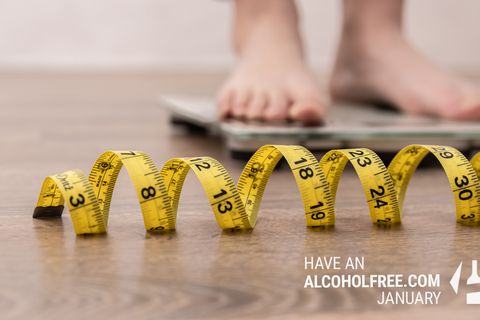Alcohol-Free January
Stopping Drinking
Recovery
Health
Unlock the Power of Hydration: Transform Your Sobriety Journey

by John Risby
Published: January 04, 2023 Last updated: November 30, 2023

Quitting alcohol can have numerous benefits for your health, including improved sleep, better digestion, and increased energy levels. One aspect of your health to focus on when you stop drinking is hydration. In this article, we’ll explain why staying hydrated is crucial for overall health and well-being, and provide tips for how to stay hydrated while quitting alcohol.
The Benefits of Hydration
Maintaining hydration is vital for overall health and well-being, whether you’re quitting alcohol or not. Adequate hydration is necessary for many bodily functions, including digestion, circulation, and healthy skin. It can also boost energy levels and improve cognition. By prioritising hydration while quitting alcohol, you can support your body during this transition and enhance your overall health.
The Impact of Alcohol on Hydration
Alcohol can significantly affect your body’s hydration levels by acting as a diuretic and impairing the body’s ability to regulate fluid balance, leading to dehydration and symptoms such as fatigue, dizziness, and impaired cognitive function.
Prolonged alcohol abuse can also cause chronic dehydration and electrolyte imbalances, which can lead to health problems like kidney damage, muscle cramps, and an increased risk of heart problems. It’s essential to be aware of the potential long-term effects of alcohol on hydration and electrolyte balance and to address any imbalances that may occur as a result of alcohol abuse.
Recognising and Addressing Severe Dehydration
Dehydration can vary in severity, and it’s essential to be able to recognise the signs of severe cases and take prompt action to avoid potential complications. Symptoms of severe dehydration include extreme thirst, dry mouth and throat, sunken eyes, low urine output, dizziness, and fainting. If you’re experiencing any of these symptoms, it’s crucial to seek medical attention as soon as possible. Treatment for severe dehydration may include intravenous fluids to replace lost fluids and electrolytes.
Tips for Staying Hydrated While Quitting Alcohol
There are several things you can do to help you stay hydrated, including:
- Drink water regularly throughout the day, rather than waiting until you feel thirsty. This can help prevent dehydration before it starts.
- Keep track of your water intake using a water bottle with markings or a water tracker app. This can help you make sure you’re reaching your daily hydration goals.
- Choose water as your go-to beverage whenever possible. Water is the best choice for hydration, and it’s also calorie-free, making it a great choice for anyone trying to quit alcohol and maintain a healthy weight.
- Consider adding electrolyte-rich beverages to your diet, such as coconut water or sports drinks. These can be especially helpful if you’re sweating a lot or engaging in intense physical activity.
- Eat hydrating foods like watermelon, cucumbers, and berries, which are high in water content. These can help you stay hydrated and provide additional nutrients.
- Stay well-hydrated during the winter months, as dry air can contribute to dehydration. Humidifiers can also help keep the air moist and prevent dehydration.
Remember, if you’re feeling thirsty, it’s already a sign of mild dehydration. To catch dehydration before it starts, pay attention to other signs, such as dark yellow urine, dry mouth and throat, fatigue, and dizziness.
How Much Water Should We Drink?
For many years we’ve been told to aim for at least 8 glasses of water a day (about 2 litres), but new research suggests this may be too high. The original recommendation may have been based on a flawed calculation of how much water we get from food, and our needs vary based on factors like age, activity, climate, and more. Remember, we can also get water from other sources like herbal teas, fruits, and vegetables.
The Role of Electrolytes
In addition to drinking water, it’s crucial to replace electrolytes when quitting alcohol. Electrolytes like sodium and potassium are minerals that regulate fluid balance in the body. Alcohol can cause electrolyte imbalances, which can lead to dehydration. You can replace electrolytes by incorporating electrolyte-rich foods into your diet, like bananas, sweet potatoes, and leafy greens. You can also consider taking electrolyte supplements. Ask at your pharmacy about managing dehydration. However, it’s important to have a balanced diet and not rely solely on supplements for electrolyte intake.
Takeaways
Staying hydrated is important for quitting alcohol and overall health. By drinking plenty of water, eating hydrating foods, and replacing electrolytes, you can help your body stay hydrated and support your health as you quit alcohol.
It’s also important to be aware of the long-term effects of alcohol on hydration and electrolyte balance, and address any imbalances that may occur.
By taking steps to stay hydrated and address imbalances, you can support your overall health and well-being as you quit alcohol.

About The Author
John Risby
Co-Founder of The Alcohol-Free Shop and AlcoholFree.com. John is a recovering alcoholic who stopped drinking in June 2004. Born and raised in Manchester, he now lives in Malaga with his wife and young daughter. He came to terms with being an alcoholic many years ago, but still finds the concept his daughter is Spanish very strange.
Unlock the power of good nutrition for a successful Sobriety journey
January 22, 2023

The Connection Between Alcohol and Weight Gain, and How to Maintain a Healthy Weight in Sobriety
January 10, 2023

How alcohol affects cholesterol
February 05, 2021

Does alcohol-free wine have the health benefits of alcoholic wine?
February 01, 2021
